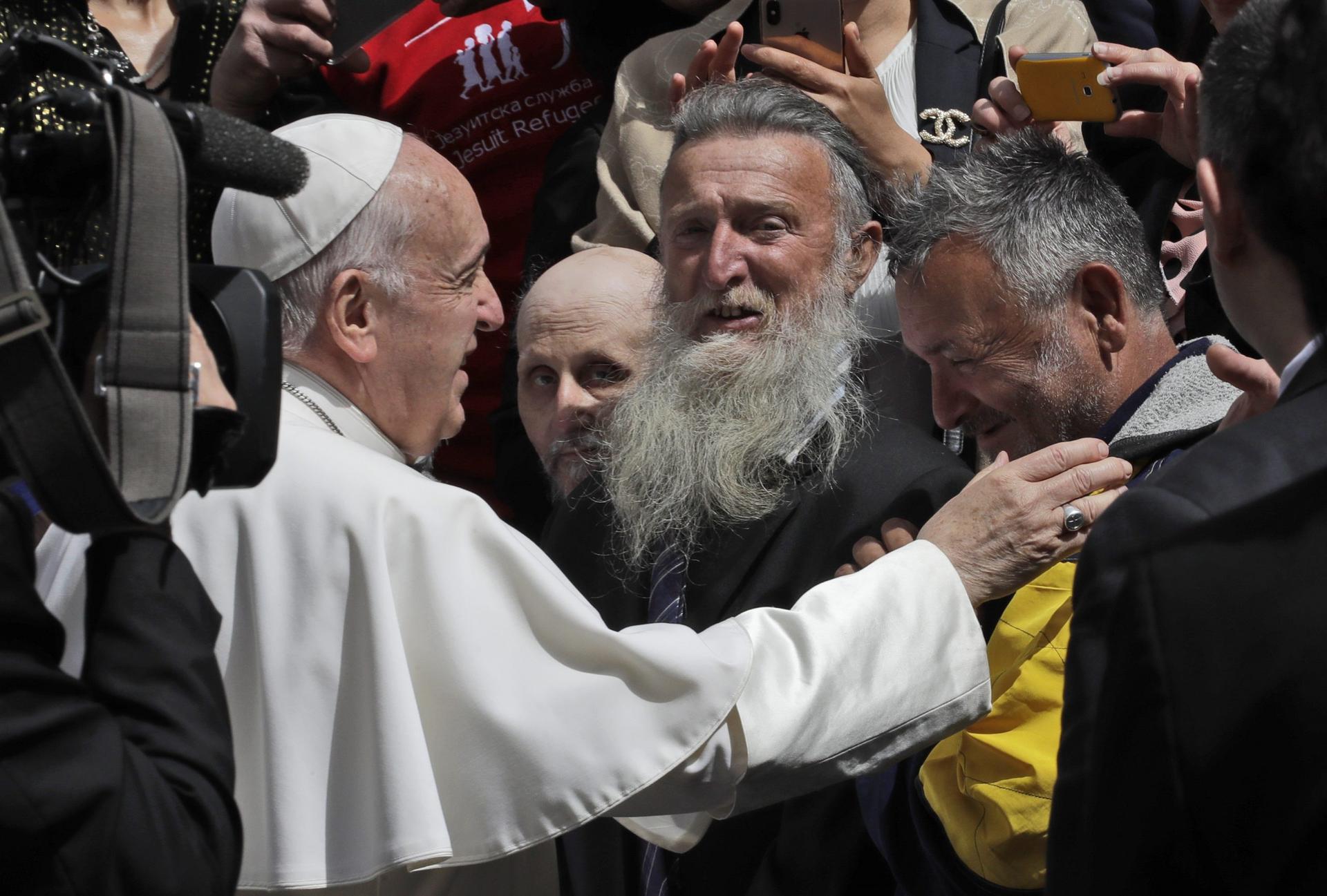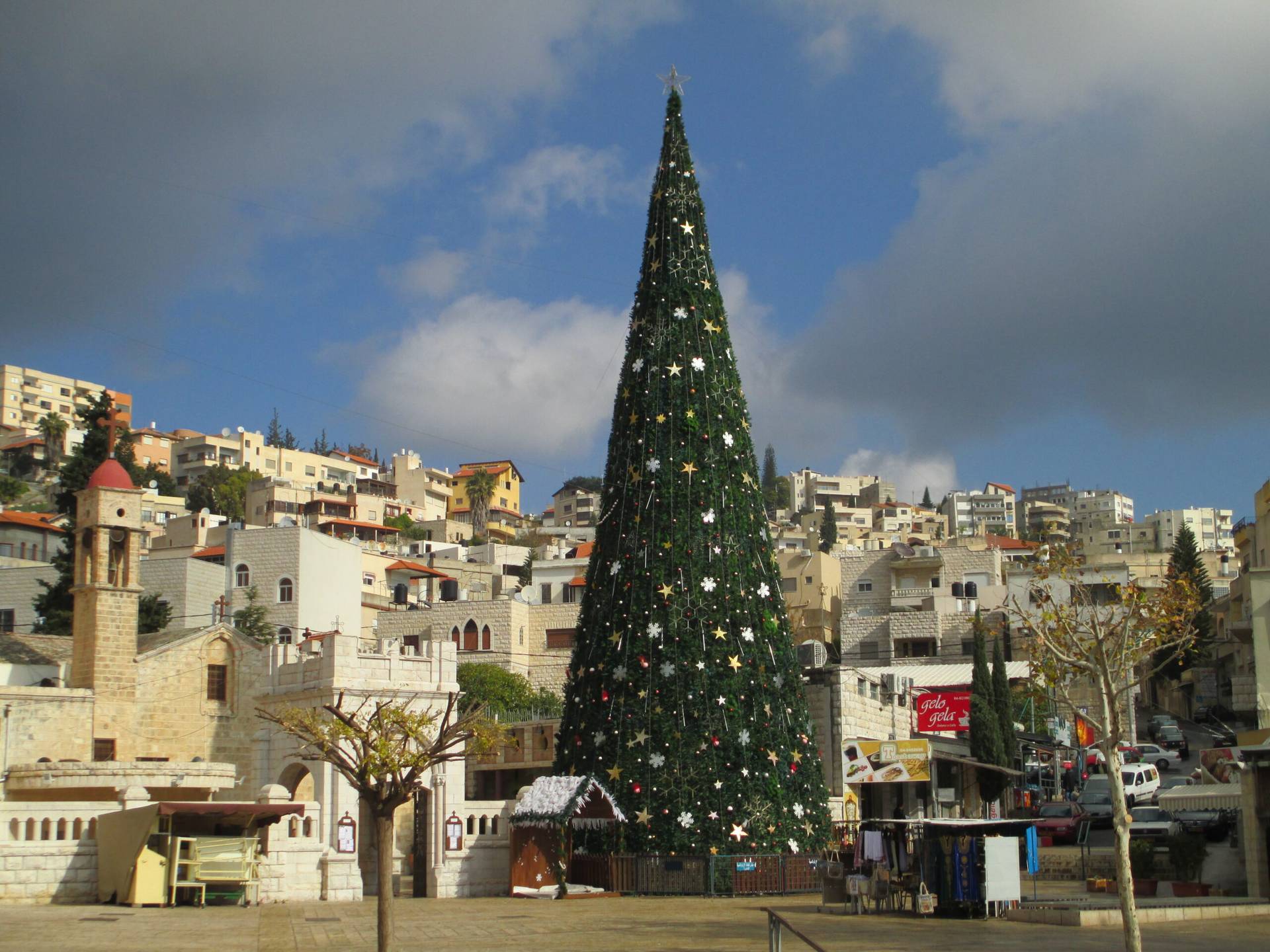ROME – In his message for the third Church-sponsored World Day of the Poor, Pope Francis said that today millions of men, women, young people and children are enslaved by “new forms of bondage.”
The third World Day of the Poor will be observed on Nov. 17, and this year’s theme is taken from the Psalms: “The hope of the poor shall not perish forever.”
According to Francis, the Psalms were written at a time when “arrogant and ungodly people” went after the poor, trying to take possession of what little they had and reducing them to bondage. This situation, he said, hasn’t changed much, with large groups of people accumulating fortunes while there are people living in the streets with their basic needs unfulfilled.
“The centuries pass, but the condition of rich and poor remains constant, as if history has taught us nothing,” he wrote.
Despite the sadness at the injustice that tinges the Psalm verse as a result of the suffering endured by the poor, according to Francis it also offers a “touching” definition of the poor, presenting them as those who “put their trust in the Lord,” knowing that they will never be forsaken.
In his message the pope wrote that the world can build “any number of walls and close our doors” in an effort to feel secure “in our wealth, at the expense of those left outside,” but this will not last forever, because the “day of the Lord” will destroy these barriers created between nations and “replace the arrogance of the few with the solidarity of many.”
“The marginalization painfully experienced by millions of persons cannot go on for long,” Francis said. “Their cry is growing louder and embraces the entire earth.”
“Daily we encounter families forced to leave their homeland to seek a living elsewhere; orphans who have lost their parents or were violently torn from them by brutal means of exploitation; young people seeking professional fulfilment but prevented from employment by shortsighted economic policies; victims of different kinds of violence, ranging from prostitution to the narcotics trade, and profoundly demeaned,” he continued.
“How many times do we see poor people rummaging through garbage bins to retrieve what others have discarded as superfluous, in the hope of finding something to live on or to wear,” the pontiff said. “They themselves become part of a human garbage bin; they are treated as refuse, without the slightest sense of guilt on the part of those who are complicit in this scandal.”
According to Francis, the poor are often judged as “parasites on society” and are “not even forgiven for their poverty,” seen as useless or as a threat.
“To make matters worse, they can see no end to the tunnel of extreme poverty,” he said.
Poor people, Francis said, are forced to work endless hours under the burning sun to gather fruit, receiving “ridiculously” low pay. They are forced to work in unsafe and inhuman conditions that “prevent them from feeling on a par with others.”
“As in a hunt, the poor are trapped, captured and enslaved,” he wrote. “As a result, many of them become disheartened, hardened and anxious only to drop out of sight.”
Quoting the passage of the Gospel in which Jesus says that which is done for and to the poor is done to him, Francis said that “we can never elude the urgent appeal that Scripture makes” on their behalf. To refuse to identify Jesus with those who are oppressed and the downcast is to “falsify the Gospel and water down God’s revelation.”
The pope then turned his attention to the late Jean Vanier, the Canadian founder of L’Arche, an international federation of communities dedicated to helping people with developmental disabilities. Francis called him a “great apostle of the poor,” to whom God gave the gift of “devoting his entire life to our brothers and sisters with grave disabilities, people whom society often tends to exclude.”
Vanier, the pope said, was a “next door” saint, who gathered great numbers of people willing to work daily to give love and “restore a smile” to many vulnerable people.
The pope said “a change of mentality is needed,” since we live in a consumerist culture of waste, which spreads “a shallow and ephemeral wellbeing.”
Those who follow Christ, he wrote towards the end of his message, are called to have preferential option for the least and discarded members of society, not to “impugn the Church’s credibility,” but to give real hope to others.
“The involvement of Christians in this World Day of the Poor and especially in the events of everyday life, goes beyond initiatives of assistance,” Francis wrote. “Praiseworthy and necessary as the latter may be, they should have the goal of encouraging in everyone a greater concern for individuals in any kind of distress.”
Follow Inés San Martín on Twitter: @inesanma
Crux is dedicated to smart, wired and independent reporting on the Vatican and worldwide Catholic Church. That kind of reporting doesn’t come cheap, and we need your support. You can help Crux by giving a small amount monthly, or with a onetime gift. Please remember, Crux is a for-profit organization, so contributions are not tax-deductible.















